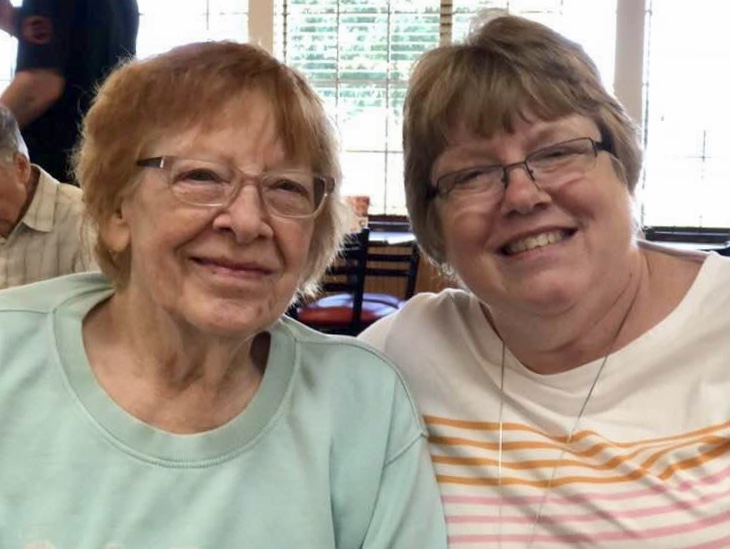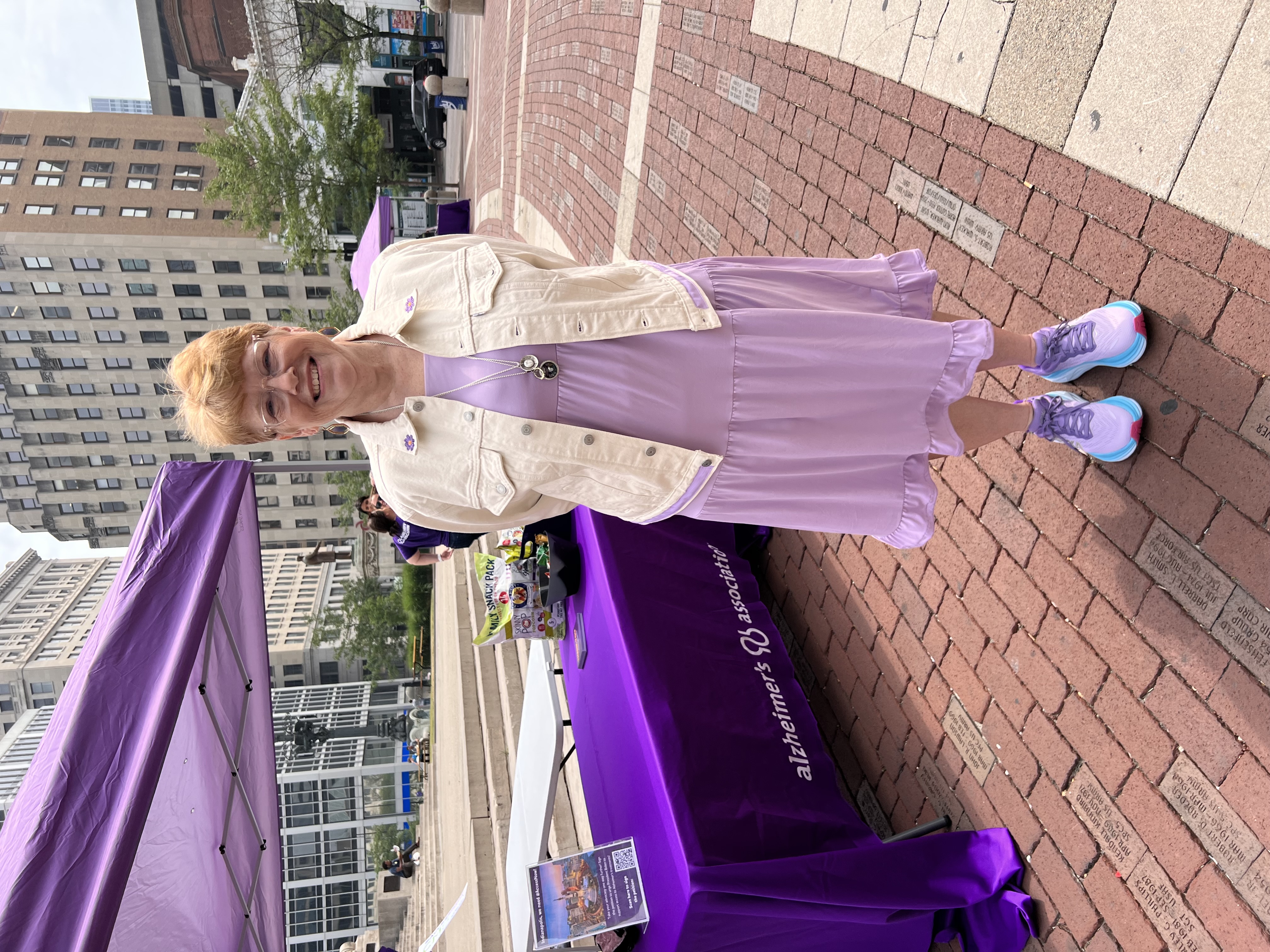Each month, we’re featuring an advocate who engages with policymakers to ensure priorities that improve the lives of people impacted by Alzheimer’s and all other dementia remain top-of-mind in Congress.
When Darlene Bradley was diagnosed with Alzheimer’s in 2017 at the age of 56, it was not her first encounter with this devastating disease. Her father Cleo passed away from Alzheimer’s in 2015, and her mother Dorothy was living with the disease. Darlene has since learned that several of her father’s siblings and cousins also had Alzheimer’s.

“I retired early because I knew in my heart that I had it. I retired on September 1, and was diagnosed with Alzheimer’s through a PET scan in November,” said Darlene.
Having seen the impact of the disease and knowing she wanted to do everything she could, she enrolled in a clinical trial for an Alzheimer’s treatment. Darlene is grateful she had access to a treatment and says it has made a difference.
“The most recent PET scan that I had is remarkable,” said Darlene. “I just want more time with my family. I have children and grandchildren. I feel like I’ve been granted more time.”

Born and raised in Indiana, Darlene has always been committed to and involved in her community. Her diagnosis hasn’t changed that. She first became involved with the Alzheimer’s Association by attending a Walk to End Alzheimer’s. She now works with her husband Mike to raise money each year, putting on silent auctions, having parties at her church and going around to local merchants in the community.
“I’m a person of strong faith, and the Bible tells us to be thankful for everything,” said Darlene. “I can be thankful that I have Alzheimer’s because I’m helping to develop a cure by being in a drug study and raising awareness.”
While she was shopping one day, Darlene was speaking with a store employee when they discovered that they were both living with dementia. Darlene was surprised, however, that the woman was not aware of the benefits of receiving a diagnosis or of treatment possibilities. Darlene shared her own experience with the woman and left the conversation motivated to spread the word about the importance of diagnosis and recent advancements in treatment.
Because of this and other similar encounters, Darlene feels determined to share her story and raise hope about the progress being made in Alzheimer’s research. Becoming an advocate has provided Darlene an opportunity to raise her voice.
“I passed the propensity for Alzheimer’s on to my children and my grandchildren,” said Darlene. “I advocate because that is of great concern to me.”
Last year, Darlene spoke at Indiana’s state advocacy day and shared her story. She joined with her fellow Indiana advocates to urge their state legislators to support House Bill 1422 to create a dementia care specialist program. The program would bring dementia expertise into more local communities by creating full-time positions at aging-focused agencies. These specialists would work with families like Darlene’s to get them the help they need.
Thanks to hardworking advocates like Darlene, House Bill 1422 was signed into law and went into effect in July 2023.
She also uses her voice at the federal level serving as Ambassador to Rep. Greg Pence (R-Ind.). Since 2022, Darlene has attended the AIM Advocacy Forum in Washington, D.C, including in 2023 with a broken leg. But Darlene has made invaluable friendships through her advocacy efforts.
“I love getting to meet all the people who advocate. I agree with [AIM president] Robert Egge that the Advocacy Forum feels like a family reunion,” said Darlene. “Purple has become my favorite color even though I’m a redhead.”
Learn how you can go purple and get involved with the Alzheimer’s Association and AIM community by becoming an advocate like Darlene.